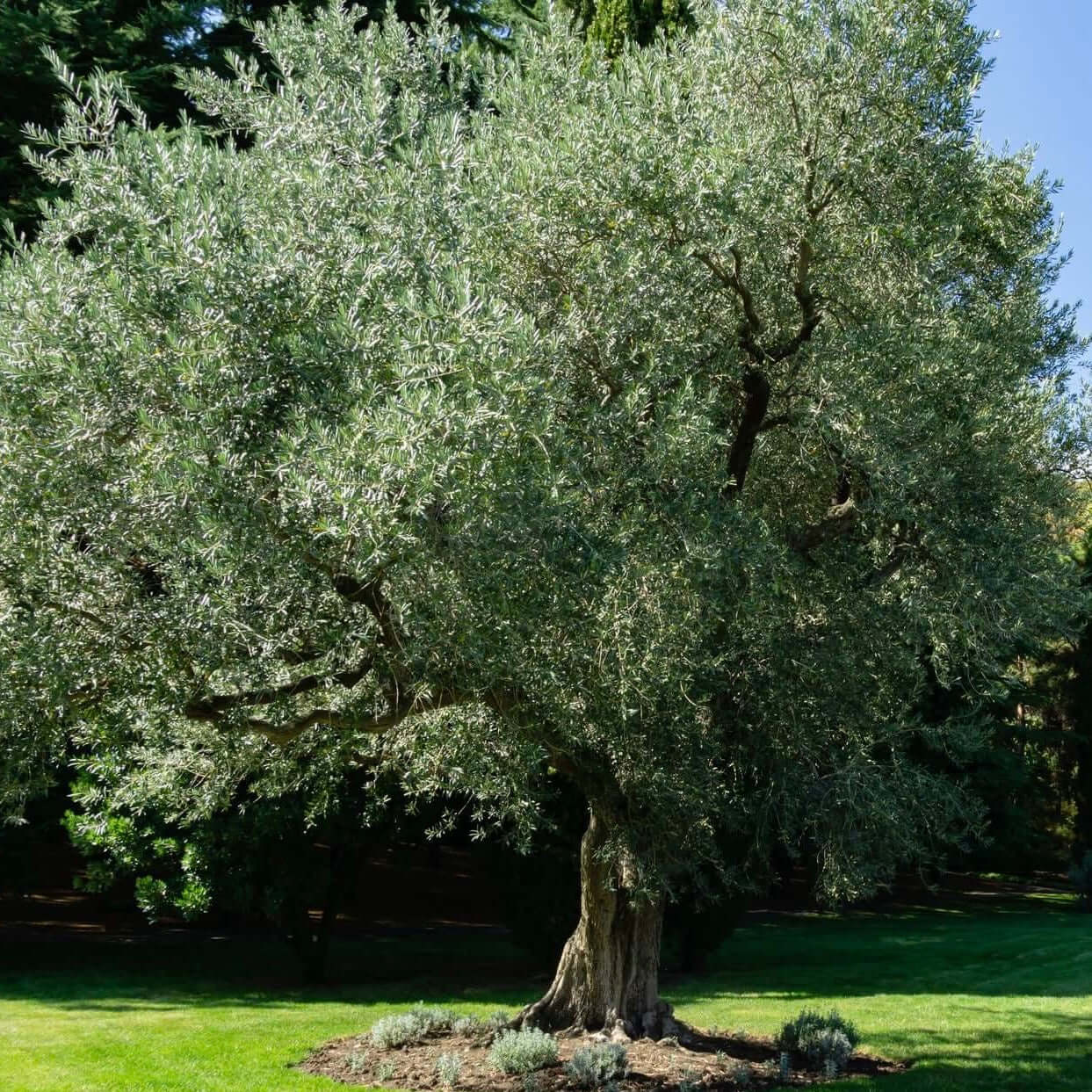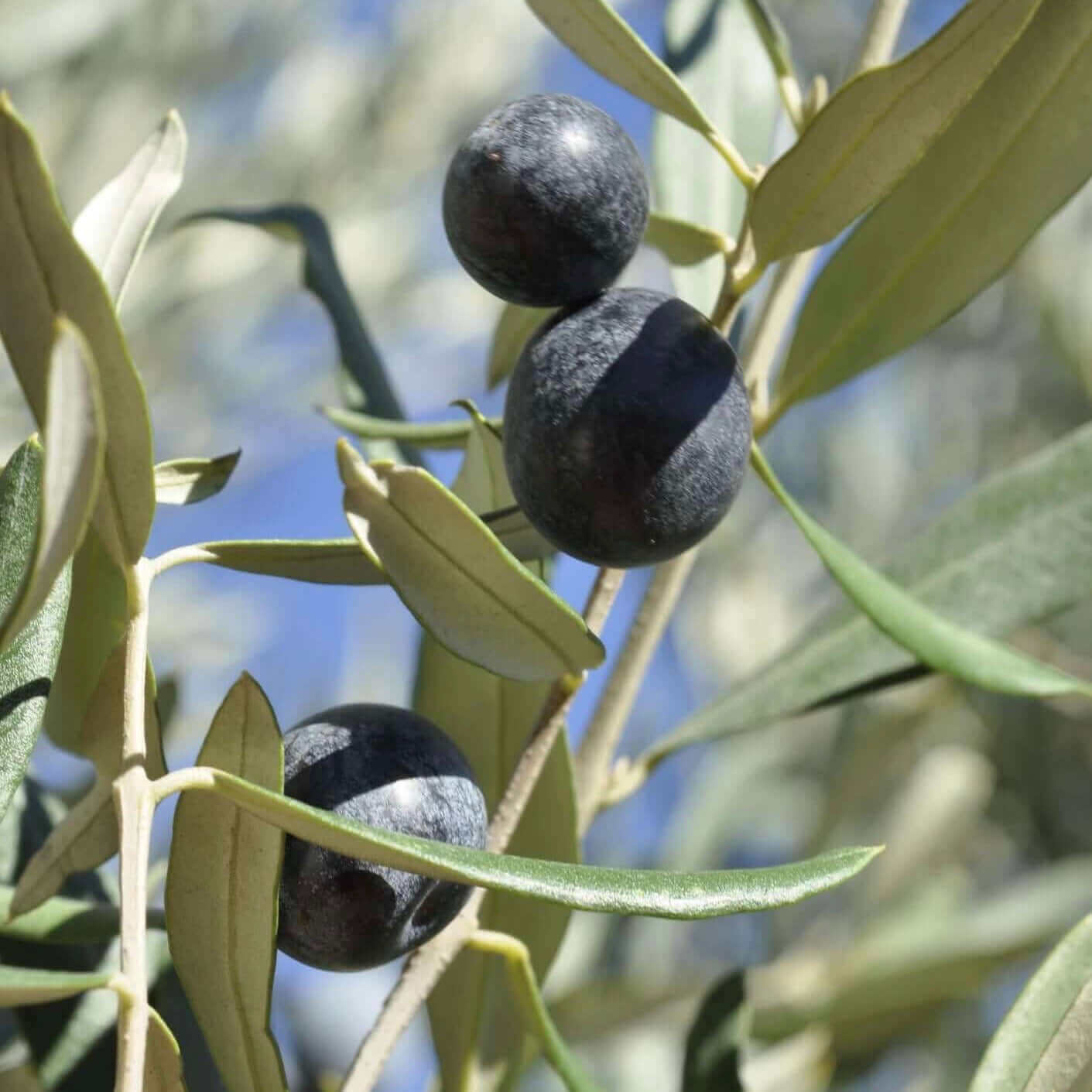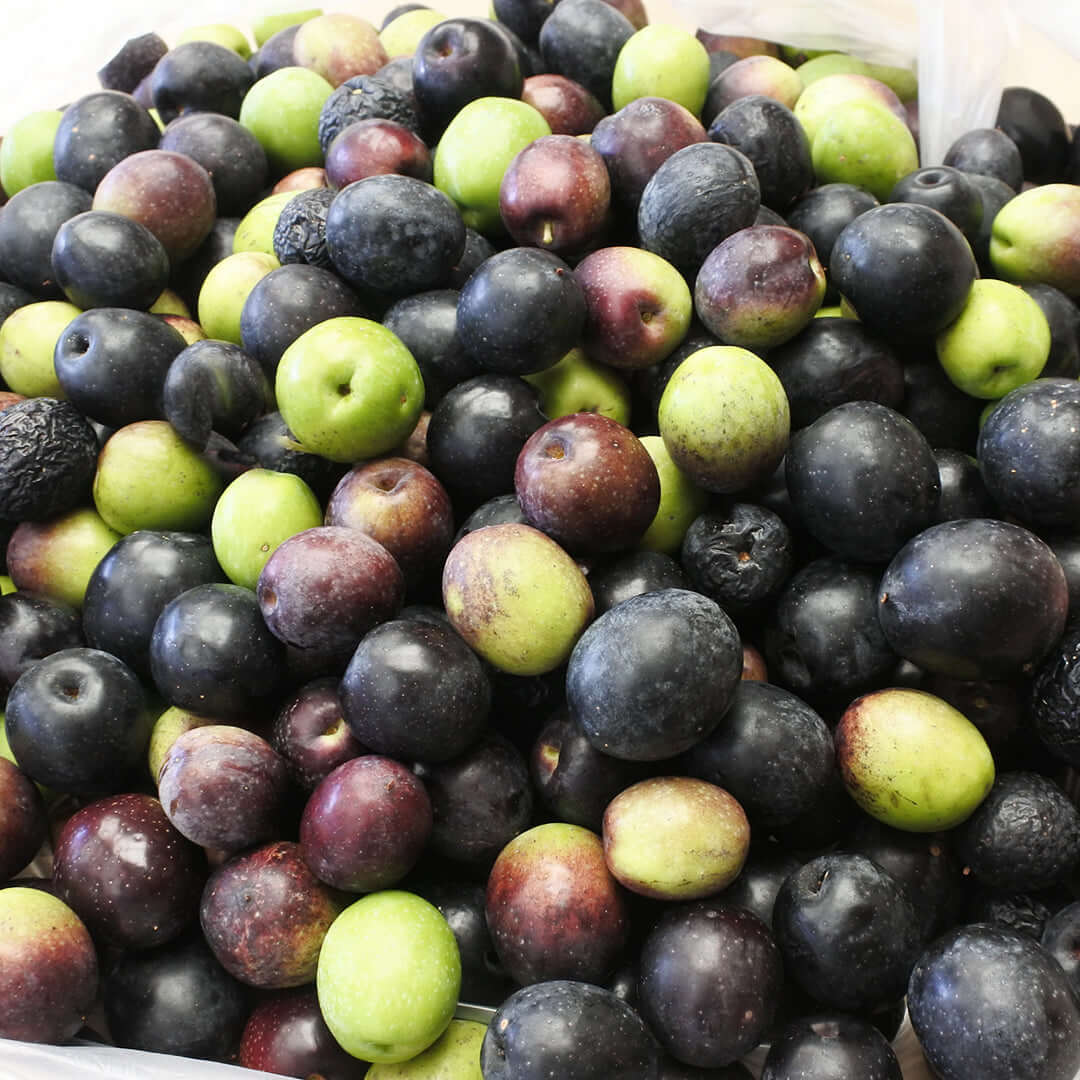
Manzanillo Olive Tree
Olea europaea 'Manzanillo'
24-hour money-back guarantee
Free delivery on orders over $349
Delivery
Big Project? Call 888-444-1126 for bulk rates!
Manzanillo Olive Tree, also sometimes labeled as Manzanilla, is the most popular variety of canned or jarred olives sold in stores in California. Favored for its plump, firm, meaty texture, and small pit, Manzanillo is renowned as the classic green martini olive and the beloved black olives that you stuck on your fingertips as a child.
The Manzanillo Olive tree produces edible olives with a diverse flavor profile and are high in antioxidants. Imported from Spain in the late 1800s, Manzanillo became the predominant commercial olive in California, superseding the Mission variety, due to its resilience, larger fruit, ample flesh, and high yield. With a pollinator, Olea europaea 'Manzanillo' is a very productive variety. Harvest when fruit is bright green, or purplish-black, depending on the desired color and use. In California, the fall season is when fruit typically ripens.
Manzanillo is a vigorous, highly-adaptable fruiting olive tree with attractive bright green leaves. A tall tree reaching up to 30 ft. tall, Manzanillo can be pruned to maintain a desired size or shape. Olea europaea 'Manzanillo' thrives in heat, is drought-tolerant, and cold hardy to 10 degrees F. Manzanillo also grows well in coastal regions. The medium-small, elliptical, bright green foliage contrasts beautifully with the matured, gnarled, dark trunk.
Known for their longevity and resilience, olive trees are not only symbols of peace, wisdom, and prosperity but also magnificent evergreen trees. Their picturesque appearance enhances any landscape, whether in groves or as a single specimen.
Preserve your own olives and enjoy the mild, fruity flavor of Olea europaea 'Manzanillo'. This popular fruiting olive tree makes a beautiful addition to any garden, combining functionality and aesthetics seamlessly.
Comparing fruiting olive trees at a glance:
‘Arbequina’ is grown for olive oil production and is considered a compact olive tree.
‘Manzanillo’ is grown for fruit consumption and is considered a table olive, producing both green and black edible olives.
‘Mission’ is a dual-purpose olive that can be grown for eating or for olive oil production.
How big does a Manzanillo Olive Tree grow?
When does the Manzanillo Olive Tree produce fruit?
Is the Manzanillo Olive Tree self-pollinating?
How much sunlight does a Manzanillo Olive Tree need?
Olive
15-30 ft.
15-25 ft.
Low
Perfect Your Landscape With Expert Help
Customize your yard with confidence. Schedule your free consultation today and bring your outdoor space to life!




